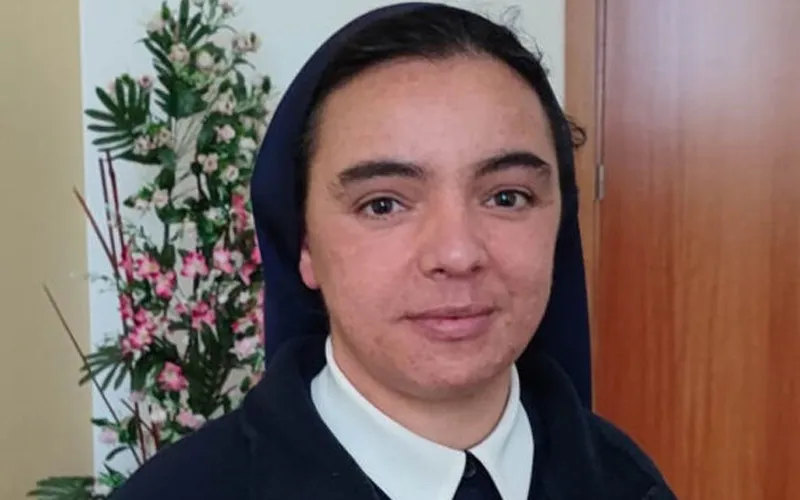“Even visiting someone at home, visiting a sick person, giving communion to a sick person, is one of the things that is very hard for me, because we enter the person’s house and we see that there are no conditions, that there is nothing,” she says, and adds, “This is the day-to-day reality. Yes, this is shocking. It shocks me a lot.”
Officials of ACN report that the COVID-19 pandemic changed routines and that for some time, the Church had to close her doors, as well as the little school that the Sisters of Reparation of Our Lady of Fatima run in the Parish of Cerâmica.
Sr. Moreira da Rocha says that during the times when the pandemic was most active, victims of terrorism started arriving from Cabo Delgado.
“During the pandemic, I dedicated myself a lot to accompanying the displaced, first in a camp, in Malica, but then I began to realize that even there, in our neighborhood, there were a lot of displaced people and no one was accompanying them,” she says, adding that in the neighborhood alone, there were 160 people, from small children to the elderly.
She explains that many places hosting internally displaced persons are full of people who carry with them dramatic, “sometimes even horrific stories of violence that are difficult to explain.”
(Story continues below)
The Catholic Nun gives the example of a woman who fled her village in the face of an attack by armed men and hid in the bush for a few days. When she reportedly returned sometime later, she found the body of an aunt cut to pieces, decapitated.
One of Sr. Moreira da Rocha’s tasks is to listen to the woman’s story over and over every day as she laments about her loss and expresses her fear.
“Every now and then she calls me to talk, because she needs to talk about it, she needs to, she needs to talk. And like those, other cases, many cases. People talk, they need to talk,” she says.
She says that it is not easy for members of her Religious Community to hear the stories that are both true and tragic.
“We have to make an effort not to get too overwhelmed as well, because we have to give those people strength. We have to help those people overcome,” the Portuguese Nun says, and adds, “The stories sound like they are from a horror movie, but they are stories of the reality lived by those people who are telling me in the first person, and you look into their eyes and see suffering. It's hard, very hard.”
Through the Catholic Nuns, ACN is providing psychosocial support to victims of attacks in Cabo Delgado to ease their trauma.
In addition to the psychosocial support, the charity foundation is distributing food, blankets, farm tools and other things that the displaced people need to resettle.
Agnes Aineah is a Kenyan journalist with a background in digital and newspaper reporting. She holds a Master of Arts in Digital Journalism from the Aga Khan University, Graduate School of Media and Communications and a Bachelor's Degree in Linguistics, Media and Communications from Kenya's Moi University. Agnes currently serves as a journalist for ACI Africa.








